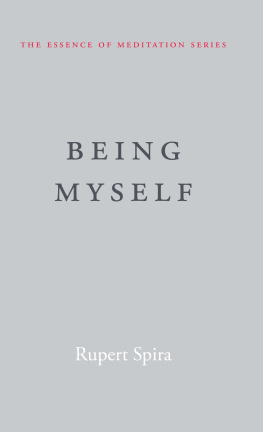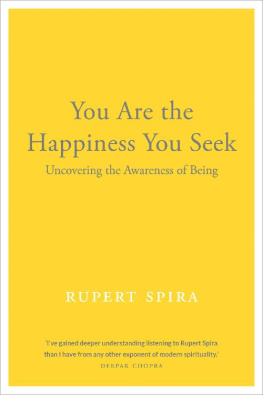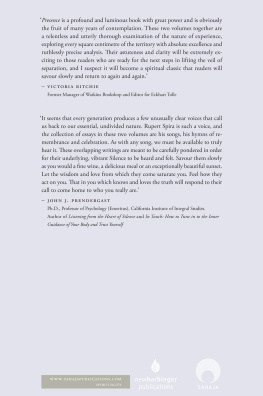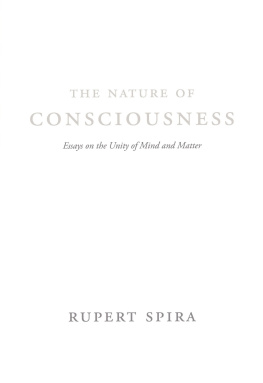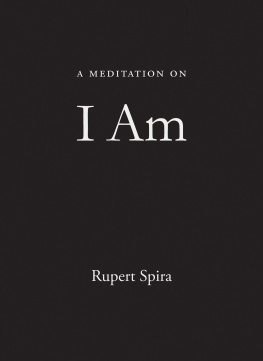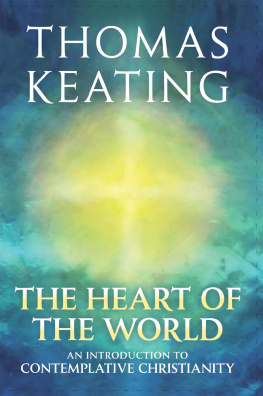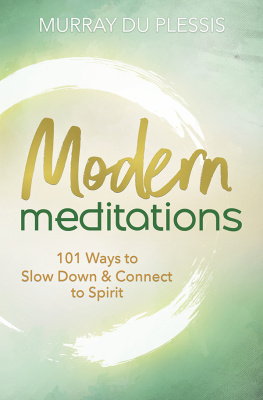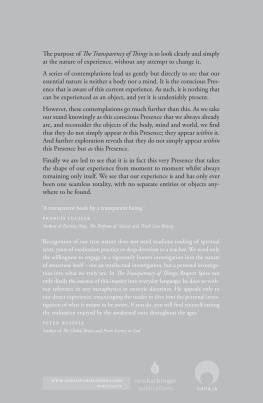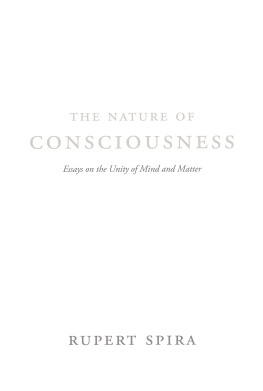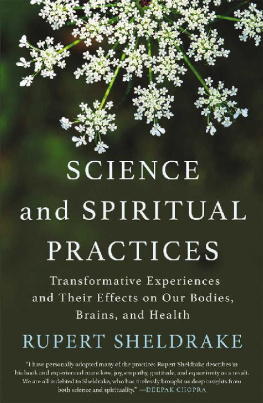No part of this book shall be reproduced or transmitted in any form or by any means, electronic or mechanical, including photocopying, recording, or by any information retrieval system without written permission of the publisher
In Thy light shall we see light
PSALM 36:9
FOREWORD
There is a common discernment that runs like a thread through the worlds spiritual and philosophic traditions. It has been gestured to by many names in many languages, but the name by which it is best known is the perennial philosophy.
Although its lineaments may be traced through comparative study of the worlds scriptures, mystics and sages, its essential tenets may be derived from first principles. One begins with the metaphysical Absolute, that Ultimate Reality or Supreme Principle indicated by such terms as the Godhead of Meister Eckhart, the Good of Plato, the One of Plotinus, Ibn al-Arabis Divine Essence, Shankaracharyas attribute-less supreme Reality, the eternal Tao of Lao Tzu and the primordial Ground of Dzogchen.
The Absolute is necessarily without limitation, restriction or determination. It is at once unique and an all-encompassing totality. It is, of necessity, partless, as the finite and relative could have no common measure with Its absoluteness and infinitude. Manifestation arises in consequence of Its infinitude or universal possibility, yet manifestation is neither separate from nor identical to the Absolute.
Ultimately, there are not two realities, the Absolute and manifestation; rather, the Absolute alone is real and yet manifestation is ultimately not other than the Absolute. The human being, as part of manifestation, participates in the inherently paradoxical relation between manifestation and the Absolute. Just as manifestation is not other than the Absolute, so we also share this indivision.
The Spirit or Self is at once the immanent presence of the Absolute and the true ground of our subjectivity. It is our very principle and essence, through which we derive our entire existence. The realisation of our identity with the Spirit or Self is at once our perfection, our liberation and our return to the Absolute, from which we have never in fact been apart. This realisation stands at once as the fulfilment and the confirmation of the perennial philosophy.
Yet how may this unitive identity be realised? Each tradition, with its attendant path, provides its own means, but such teaching and spiritual practice may only lead to the realisations outer boundary. There is a chasm yet to be leapt. In Platos Seventh Letter, he speaks of the sudden passage from discursive reasoning to intellective vision. As with the seeress Diotimas description in Platos Symposium of the apprehension of the Form of the Beautiful, the vision comes of a sudden, revealed to the soul as a spontaneous, immediate presence:
For a thing of this kind cannot be expressed by words like other disciplines, but by long familiarity, and living in the conjunction with the thing itself, a light as it were leaping from a fire will on a sudden be enkindled in the soul, and there itself nourish itself.
In a similar manner, the course of instruction in Advaita Vedanta is presented in terms of a threefold process of deepening engagement: hearing the teaching, reflecting upon it and stabilising oneself in it. It is through this process of engagement at once rational and experiential that direct insight or realisation may arise. The moment of how this may come about is a mystery, but the process is not: it is the result of skilful teaching suitably received.
Rupert Spira is precisely such a skilled teacher, one who speaks at once out of a depth of realised understanding and a breadth of practical experience in guiding seekers towards this fundamental insight. An ancient spiritual metaphor contrasts green wood with dry wood as a measure of the readiness of the seeker. As the wood is seasoned, it may eventually catch flame. Ruperts teaching may be seen as the throwing off of numerous sparks that progressively season the seeker and lead as with Plato to the eventual kindling of unitive realisation.
The essence of non-dual understanding is summarised by Shankaracharya as, The Absolute is the only reality; the world is not in itself real; the individual self is not different from the Absolute. In Being Myself, Ruperts focus is primarily on the concluding section of this statement, highlighting the essential identity between the individual I and the Absolute I Am. Everything that Rupert has to say in what follows is a pointer, a spark, to that essential insight.
The seemingly ordinary referent I is a key to this realisation. What is this I? Just as Ramana Maharshi repeatedly instructed seekers to enquire of themselves, Who am I?, so also the familiar question of Christ might be taken personally and directed inward: Who do you say I am?
The words addressed to Moses from the theophany of the burning bush reply, I am that I Am, which may be understood as I Am is who I am. The same answer may be found in al-Hallajs ecstatic declaration, I am the Real, as well as in the great saying of the Upanishads, I am the Absolute.
Francis Bacon once observed that only some few books deserve to be thoroughly chewed and digested. I would suggest that this is such a book. The process of hearing and reflecting is, for most seekers, gradual and protracted. The teaching is at once obvious and yet subtle; even when it is clearly grasped intellectually, the ego-sense remains persistent. Further, as much as Ruperts words are pointers, they are also, inescapably, veils. What he is gesturing towards is That for which we have no words and before which language fails. With patience, deep consideration and rumination, the veils of his words may eventually be pierced through and the reality shining behind and through them clearly recognised. May the reader find it so.
Peter Samsel
Ithaca, New York
September 2020
Translated by Thomas Taylor.
ACKNOWLEDGEMENTS
I would like to thank all those who have transcribed guided meditations from my live events, some of which form the basis of this book, in particular Ed Kelly, Leslie Tuchman, Monica Timbal, Michael Oliver, Annabelle Williams, Will Wright and Terri Bennett. I would also like to thank Jacqueline Boyle, Rob Bowden, Caroline Seymour, Kyra OKeeffe, Linda Arzouni, Ruth Middleton, Stuart Moore and Peter Samsel, all of whom have contributed directly or indirectly to this publication and without whom it would not have come to pass. I am deeply grateful to them for their care, generosity and integrity.
NOTE TO THE READER
The contemplations in this book are taken from guided meditations that Rupert Spira has given during meetings and retreats over the past several years. They were originally delivered spontaneously but have been edited for this collection to avoid repetition, and to adapt them from the spoken to the written word.
Meditation takes place in the space between words, although it remains present during the words themselves. Therefore, these contemplations were originally spoken with long silences between almost every sentence, allowing listeners time to explore the statements in their own experience. The meditations in this book have been laid out with numerous breaks between sentences and sections in order to invite and facilitate a similarly contemplative approach.

